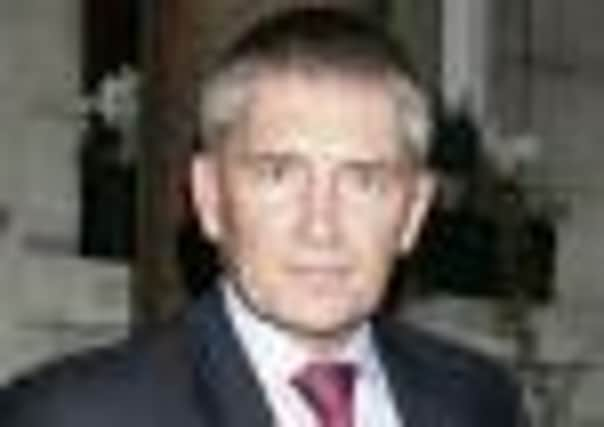Politicians aren’t up to being police chiefs says Med Hughes


Med Hughes was speaking the day after he stepped down after leading the South Yorkshire force since 2004.
Mr Hughes rejected claims he had retired early because he disagreed with the Government’s policy of introducing elected police commissioners.
Advertisement
Hide AdAdvertisement
Hide AdTaking questions on BBC Radio 5Live, he used the example of South Yorkshire Police Authority’s decision to deny his successor a car to hint that some politicians may be trying to degrade the chief’s role.
He said: “What does worry me about having an independent Police and Crime Commissioner is that we will not get the people of the right calibre to take up that role.
“I’ve seen decisions recently in my police authority by, perhaps, ambitious councillors who want to be that person, which show their lack of vision for the role.”
Asked to give an example, he said: “It’s almost the most trivial one.
Advertisement
Hide AdAdvertisement
Hide Ad“On my final day of work my police authority decided that my successor won’t have car - the only police chief in the country that has neither a vehicle nor an allowance.
“You could almost believe that they want to weaken the role of police chief in order that the Police and Crime Commissioner takes a bigger role.”
The police authority has only had two applicants to succeed Mr Hughes and is readvertising the £148,000-a-year post.
The outgoing chief said the job was paid less than the local fire chief.
Advertisement
Hide AdAdvertisement
Hide AdMr Hughes said his decision to leave his job a year early was not because he opposed the Government’s policy on commissioners.
He said it was linked because he did not want to see a situation next year where a brand new commissioner was appointing a brand new chief constable.
Mr Hughes said: “I just thought that was bad governance.”
But he said he thought making current police authorities “up front and focused” was a better option.
He said: “I can’t see how a single person is more representative of a local community than the 17 that we have at the moment.”
Advertisement
Hide AdAdvertisement
Hide AdMr Hughes said he believed cuts across public services generally will lead to a rise in crime.
He said: “I have never said it’s cuts in police funding that leads to a rise in crime.
“What I’ve said is, and I’m very clear on it, it cuts across the range of public services that support society and support our communities - those will lead to a rise in crime.”
He said officers were already seeing rises in domestic burglary and metal thefts.
Advertisement
Hide AdAdvertisement
Hide AdAnd he rejected the idea that savings could be made by pulling officers from “back office” roles, saying his former force had done this years ago, as part of previous budgeting exercises.
He said: “We don’t have large numbers of police officers answering calls from the public or working in admin offices.
“We have already done that.”
But he said that, while crime had fallen by 30 to 40% in most categories during his seven years as chief, this trend was now starting to reverse.
Asked by a caller why savings could not be made by, for example, having one East Midlands Chief Constable for the current Nottinghamshire, Leicestershire and Derbyshire forces, Mr Hughes said he supported amalgamation of forces as a way of saving cash.
Advertisement
Hide AdAdvertisement
Hide Ad“That sounds like a very good idea and it would be a better way of saving 20% of budgets,” he said.
And, asked about the August riots, he said Sheffield and other South Yorkshire towns avoided trouble partly because his officers took proactive action, closely monitoring chatrooms and Twitter.
He said: “The police turned up at all the suggested venues for disorder but nobody else did.”
But the outgoing chief refused an invitation to criticise the Metropolitan Police’s response to the riots, saying it was a very different policing environment in London.
Advertisement
Hide AdAdvertisement
Hide AdMr Hughes, 53, became a police officer in South Wales in 1979 and has also worked in West Yorkshire and in Greater Manchester.
He hit the headlines in 2007 when he was caught driving at 90mph in a 60mph limit in North Wales when he was chairman of the roads policing committee of the Association of Chief Police Officers.